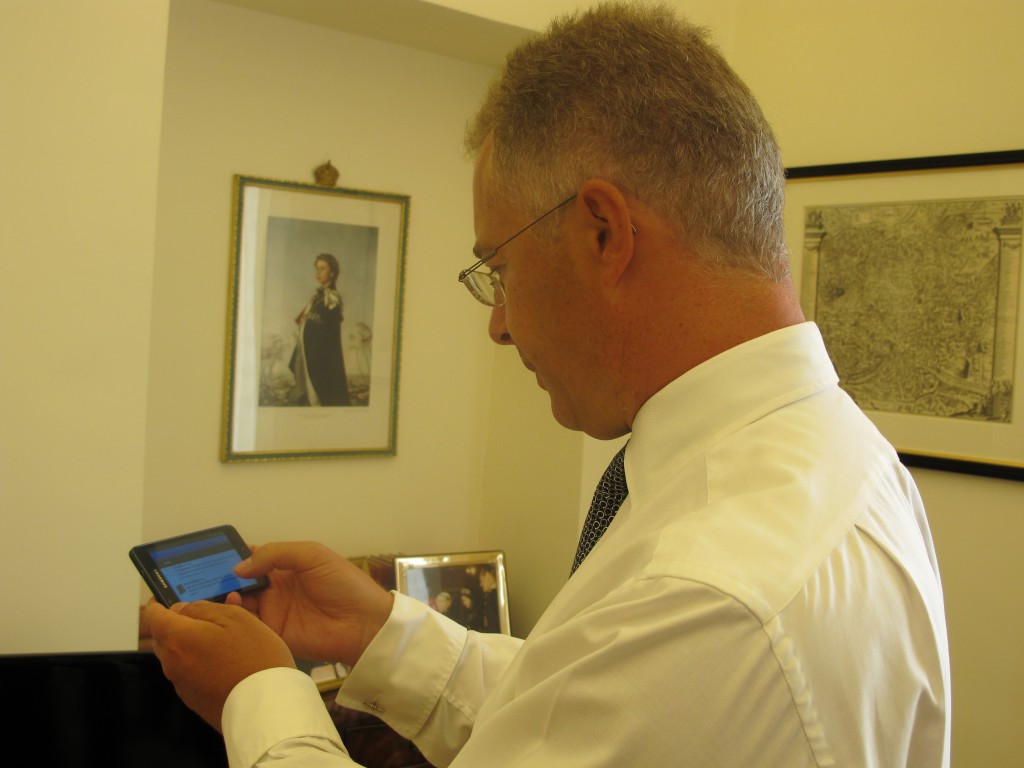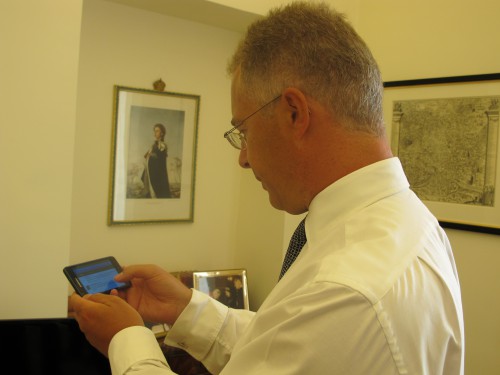28th May 2014
Digital diplomacy, communications and the Holy See


The Foreign and Commonwealth Office and our global diplomatic network lead the way in the development of digital diplomacy (or “Twiplomacy” as it is sometimes called: Twitter + Diplomacy). Some people, retired diplomats amongst them, have been critical of “tweeting ambassadors”. Yet our experience has been a positive one. Whether we like it or not, we live in a world of instant communication. The greatest risk is not our use of digital media, but failing to have a digital presence.
This is especially true for a small embassy like mine, which can inform the British taxpayer what we do, expand our footprint globally, and communicate with a vast range of interested contacts in a way that would have been inconceivable ten years ago without the use of new technology. Inevitably, not all I do ends up on the internet. That is the balance between discretion and public communications we must all strike. But it certainly helps my mission here at the Holy See to have access to the powerful tool of digital media.
It was a real pleasure this week to have been invited by the Holy See Secretariat of State to talk to Holy See communications professionals from a wide range of Pontifical Councils, Congregations and other institutions about what we do in this field. Many are keen to develop their own digital presence. Some, like the Pontifical Councils for Culture and Social Communications are already very active on Twitter or Facebook. Others may have active individual accounts but perhaps lack a clear strategy. Some are just starting out.
I encouraged my audience to take the plunge. Pope Francis likes to stress the importance of communications. He has also encouraged the Church to take risks. Yes, exposing yourself and your institution to the media scrum is a risk. It is also a great opportunity if done authentically, with balance, and a clear eye for the limitations. Silence is sometimes golden. Yet the reality is we live in a digital age. The world already has 1.5bn smartphones. If we have a story to tell but don’t inform people what we are doing, through the medium they themselves are using, how will they ever know?